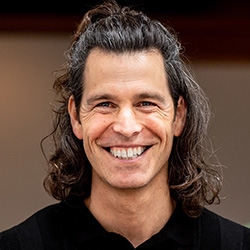

Search Results: love
-
Trainer Tip: Identify one goal and take one small step toward achieving it today. It doesn’t matter how much or how often. The reward is in taking the first step, and then the second and third until you’ve attained your goal.
-
Strengthen team collaboration by building relationships and navigating shared challenges.
-
Create and sustain a collaborative culture by learning which systems shape organizations.
-
- Tune into your self-dialogue with a compassion that supports loving presence
- Shift limiting beliefs about your parenting patterns so you can choose consciously
- Transform frustration, confusion, or guilt into constructive, honest discussions
- Foster your ability to say yes and no in a way that supports your natural limits
-
- Welcome unpleasant feelings and meet their flow in and around the body
- Discover how you can enjoy Anger as a beautiful life force
- Realize insecurity and depression as a door to the core of your humanity
- Know how to use fear to firmly connect to your life and strength
-
How can we mobilize this insight in support of our own and others' healing? These recordings will shed light on how the social context into which we are born affects our experience, and what we can do about it at the individual level within the paradigm of nonviolence.
-
Trainer Tip: When faced with doing a task that doesn't seem fun try saying to yourself something to the effect of “I do this activity because I value...”. Complete the sentence with related needs, then ask yourself if you still want to complete the task. This can take the demand out of the tasks. Next, choose accordingly. This can teach you about, or give you more access to, true choice in life.
-
- Discover what is yours to do in response to our global crises
- Weave nonviolence more deeply into how you live and lead
- Receive ongoing support in how to be effective and alive while pursuing your highest goals
- Increase your capacity to face and mourn current reality as a source of greater choice and energy
- Be a part of transforming the legacy of scarcity, separation, and powerlessness into a livable future
-
- Understand the essential relationship between personal healing and social change — and how to communicate it to others.
- Increase your compassion capacity for different ways of being in the world.
- Get clarity about the difference between equity and equality — and how to generate equitable processes in your communities and networks.
- Obtain tools to explore the various factors that contribute to your understanding of power and privilege — including your own.
-
Trainer Tip: Notice where you're judging or blaming people for not meeting your needs. Strive instead to notice and name the related feelings and needs longing to be met. Ask a question to check with the other person about what they want and need. This can open up the conversation towards mutually beneficial solutions.
-
We can shift from being absorbed and identified with our inner chatter and feelings to being the space of awareness of these things. Observe your breath. Then observe your mind generating thoughts. Next, feel sensations of your body, particularly the difficult ones. Now, connect with the underlying energy of needs. Ask your unconscious mind for universal needs words related to what you now notice, think and feel.
-
The regeneration movement employs practices for healing our planet from damage, and boosting Earth sustainability. Environmental and social degradation is deeply connected -- as it comes from the same extractive, exploitive mindset of economic and related systems. Connecting with universal consciousness and needs underlying conflicts, we connect with commonality of all planetary life. This helps tap new abilities for working together. This can contain power to regenerate and heal ourselves and Earth.
-
Shared story has been a way for groups to unite in opposition to a common enemy. But more divergent and virulent beliefs/stories swirl through the internet and social media, facilitating people to polarize against one another. So notice when you're caught in a polarizing story; try shifting focus to observing your mind; somatic presence; underlying commonality; consciousness as universal need, energy, and spaciousness; and the natural compassion and generosity that flow from this.
-
- Witness these two visionaries engage with love, openness, and curiosity
- Explore open questions and curiosities you have about NVC
- Help support the ongoing sustainability of NVC Academy
- Expand your thinking within NVC and its relevance to our times
-
Mismanaged emotional pain can compound and hurt ourselves and others. Four ways we can mismanage pain are: denial, blame, depression, and escape/numbing. This can result in hatred, resentment, discrimination, revenge, anger, and more problems. The fifth way we can deal with pain is to confront the pain acknowledging it and dealing with our unmet needs. This is a more direct path. Read on for more ideas for how to handle the pain.
-
We can see anger as an alarm or signal that can inform us that unmet needs require attention, or that we hold judgements. We can shift our own anger in several healthy ways: get present, identify the stimulus and any judgements or unmet needs, look for ways to meet our needs, make requests that support our needs, express our needs to ourselves and appropriate others, and more.
-
Trainer Tip: In our effort to be heard, we often forget to listen. In fact, your need to be heard will not be met completely until you have heard how what you said affects the other person. If we want to ensure that we're heard we can ask the other person to reflect what they heard us say. And we can hear what's going on with them. It is important to remember that a dialogue is not complete until both people have been heard.
-
Trainer Tip: Ask someone what they enjoy about you being in their life. For example, “Would you tell me 3 specific reasons you enjoy having me in your life?” To a vague reply like, “Oh, you know I love you. I just like spending time with you.” Or, “You’re one of my best employees!” ask for more specificity (eg. “Can you tell me what I do and what needs it meets that makes me one of your best employees?”). This may reveal more to both of you.
-
No one on their deathbed wished they worked more. Working is unlikely to bring a meaningful life. And yet greeting friends with survivalist expressions, such as, "I'm dead-tired", can feel like affirming our own worth. Taking time off can bring inner spaciousness, ease, rest and consequently time to meet life, to really meet it. Which brings more clarity into the question of what we would like to celebrate on our deathbed.
-
Observation is the awareness of our sensory perceptions and thoughts, separate from evaluations and judgments. Feeling involves bodily sensations and emotions, distinct from "faux feelings" that mix thought and emotion. Needs encompass universal human requirements for survival and wellness, while thoughts and evaluations express needs. Requests are rooted in connection and invite true willingness, rather than demanding compliance.

Quick Links
Subscription Preferences
Stay In Touch!
Looking for ways to keep up with NVC Academy news, get special offers, free resources, or words of inspiration? Here are five ways to stay engaged:




















